Before I address healing, it seems once again appropriate to talk about trauma, because being aware of our fears and hurts brings them into our field of conscious awareness and we then are able to prevent further trauma as well as seek the process of healing. While the small number of women I serve may experience birth as ecstatic, this is a miniscule percentage compared to the women out there who give birth in private or public hospitals, and are exposed to the ‘medicalized’ way of doing things. Our history as the female of the human species has a bearing on our attitudes and feelings towards birth.
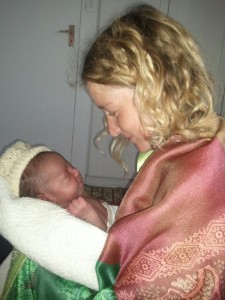
Every experience from conception to the end of life is recorded in our brains and our bodies. Disregard, disrespect and traumatic events leads to tensions and rigidity in our minds and bodies that may impede the process of natural birth.
As Fodor, a psychologist who wrote about birth trauma, once said “Birth is a genital event and an impending confinement almost inevitably mobilizes the memories of that distant period when the prospective mother herself was in the position of the child within her womb.” (Nandor Fodor, Search For the Beloved, 1949). The birth trauma we carry from our own births as well as the traumatic experiences of our childhoods are compounded and when we are pregnant and give birth to our own children, these memories surface in the form of unnameable anxieties and symptoms of stress.
Lets begin at the beginning and ask a few pertinent questions about possible history:
- Were you wanted as girl babies or as boy babies? Or was your gender irrelevant to your parents?
My sister for example was the second child and while gender was irrelevant to my mother, my father unconsciously wanted a boy. When she was born, he could not acknowledge she was a girl and called her Henry for the first three months of her life until my mother in exasperation, ‘showed’ him that my sister was a girl and he was to please call her by her name, Gail! This may seem amusing, but underlying this story is the issue of the intrinsic value of a girl as being lesser to that of a boy. For many of us, this deflated value pervades our surroundings as we are born and grow up, diminishing our self worth and unconsciously teaching us that we are lesser, our bodies weaker, our minds more feeble and our emotions way too many! - How were you born? What was the experience of birth for your mother when she gave birth to you? the way in which you were born will affect your perception of how you will give birth. Was it a fear-filled event or was it a confident and easy process?
- How were you treated as you grew up from little girls into women?
When a mother has a daughter, she is often very ‘hard’ on the daughter, especially if she has experienced abuse or trauma herself. - How was your mother treated as you were growing up? Was she regarded with respect and honour, or was she mistreated? Young girls identify with their mothers and watching their mothers be abused can make their future relationship with men filled with trepidation.
- What did you learn from your parents about puberty, sex, your femininity, boys? Were you over-protected or did you learn that you are capable and strong? Some parents find it difficult to talk with their children in a comfortable way about sex, while other parents may be too explicit and/or neglectful.
- Were you sexually abused as children or young girls in any way and how has this affected your inner life and body?
Sexual molestation or abuse at any time in a baby or young girl’s life has a devastating impact on her development and this will affect her whole sexual and reproductive life. Such trauma is not only stored in the thoughts and emotions but also the body and particularly the pelvic area, the sacred bowl of womanhood! This can have a negative and difficult impact on giving birth later in life. - Were you raped as child or young woman? Rape is always traumatic to the person involved and the thought of bearing a child after such a traumatic event can be very frightening.
- What was your mother’s birth experience and what did she teach you about natural birth? If your own birth was traumatic, these memories can lead to tocophobia, a real condition of absolute fear of childbirth. Were you taught that you are strong, your body is perfect, powerful and made to give birth or were you taught that it is weak or incapable?
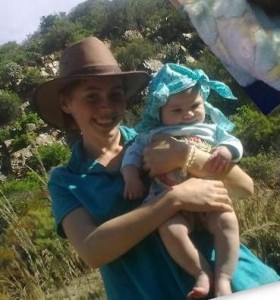
When a woman carries trauma or tension around her body and especially her pelvis, pregnancy and birth can elicit feelings of distress and even despair. Mothers may be overcome by symptoms such as anxiety, panic attacks, muscle pain, lack of trust in her body, fears about the baby, bad dreams, fears about motherhood, sadness and grief. When there has been a traumatic event in childhood, flashbacks may be triggered by the pregnancy or labour and can be very frightening to the mother. Candice (pictured) was terrified of giving birth and did not believe she could do it, yet really wanted to. Her mother was also afraid and this affected Candice’s feelings about herself.
Both mother and daughter were listened to, coached and counselled extensively during the pregnancy and labour and the subsequent natural birth was a deep healing moment for both mother and daughter.
Healing these injuries prior to labour and birth is highly recommended and helps to improve the chance of a natural birth. Ways to heal will be discussed in a future post, and while there are many self help measures, it is also imperative to find a counselor who will listen empathically and guide the healing process. Choosing to have a doula or professional midwife with you at the birth who advocates for your emotional and bodily integrity can help ameliorate the effects of traumatic interventions.
When a mother is aware of what might happen, she is better able to prepare and request respectful treatment based on the best available researched evidence, the Cochrane Collaboration database.
- Attended to by midwives or nurses they have never met i.e. strangers
- Asked to remove their clothes and wear a flimsy hospital gown in a cold room
- Expected to lie down on a clinical hospital bed, bright lights
- lack of natural pain relief tools such as baths and water
- privacy not protected, cleaners, kitchen staff entering room
- Lack of privacy and hearing other women who are in labour or giving birth
- having to put legs in stirrups for examinations and/or the birth
- vaginal examinations that are painful
- separation from partners or relatives
- separation from the baby
- being left alone
- being ‘discussed’ by a group of doctors/medical students in your presence
- the obstetrician you booked with only arrives for the last half hour of the birth
- giving birth in the ‘stranded beetle’ position on your back
- being pushed for time (if you haven’t progressed fast enough we will have to…..)
- insensitive comments by staff and or obstetrician
- staff and or an obstetrician who are fearful of normal birth processes themselves
- routine episiotomies, the use of vacuum or forceps
- injections being given without your permission
- being prohibited from eating or drinking in labour
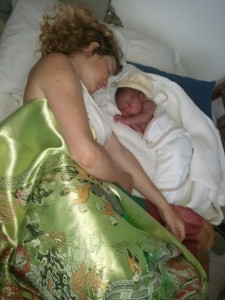
Many women will experience inordinate discomfort in these typical scenarios, may have flashbacks and feel completely depersonalized and helpless. The tragedy is that situations such as described above alarm the body and signal a hormonal release (fight or flight) that shuts down the process of labour. Hence the increasing caesarian section rate for failure to progress and the ever increasing anxiety and fear around childbirth. Fathers play an important role here and can slow down the negotiations, can advocate on their wife’s behalf, can protect the mother of their baby from invasive and unnnecessary procedures. Lisa gave birth in hospital and managed to overcome her feelings of loss that her husband was unable to be there (he had to attend to his father’s death) and my stepdaughter Annwen Mazetti acted as her loving doula.
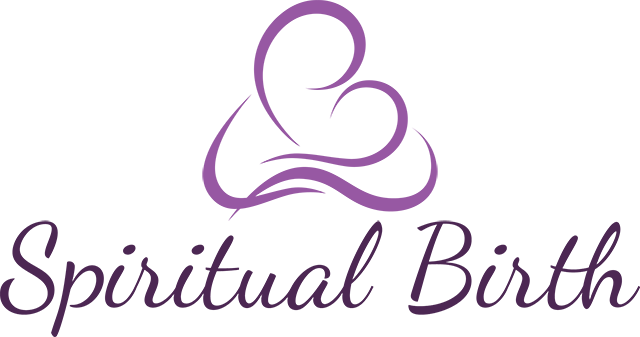
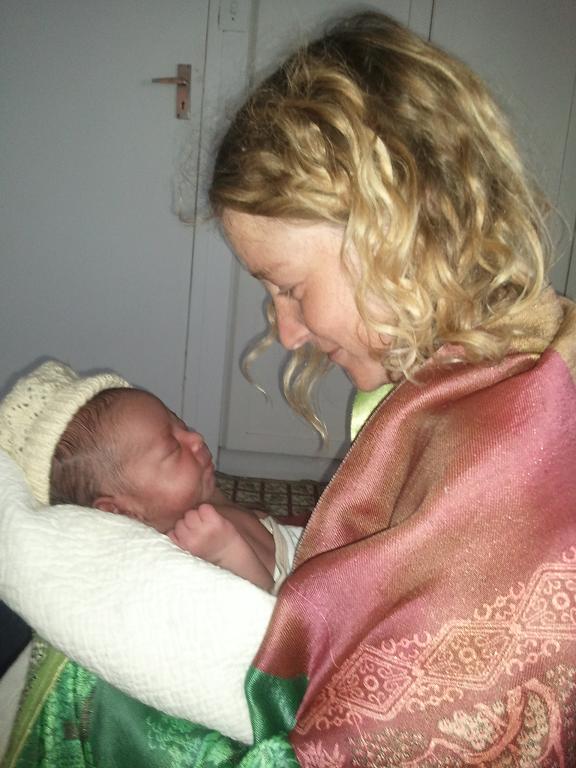
This whole series is great, Thanks Marianne!
Thank you Collette and Pat for reading and commenting here. It really is all about connecting with our bodies and particularly the pain stored in the most feminine parts of our bodies, the issues which have to do with our very identity as women. We have so much potential to love ourselves and others and bringing forth a baby is the most incredible act of love!
Thanks Marianne for an awesome article. Even though I am aware of all that you refer to in your article – this was a special reminder of the importance of “what you put in is what you get out” and just how valuable it would be, even being aware already, of getting down and doing the therapy/work – should I fall pregnant again. Can’t wait for the next post.
Hope lots of moms and their carers will read this. It’s so important!
Thanks Ginny. Every little bit helps.
Another one of your fabulous articles. This one will help all those mum’s who would like to have their baby’s born naturally and hopefully not in a hospital.